commentary Commentary
Commentary: Here’s what Singapore’s human capital index in a world of disruption should look like
The World Bank Human Capital Index released this week doesn’t quite gauge how ready our youths are facing a volatile, uncertain, complex and ambiguous world, says CEO of consultancy Forest Wolf.
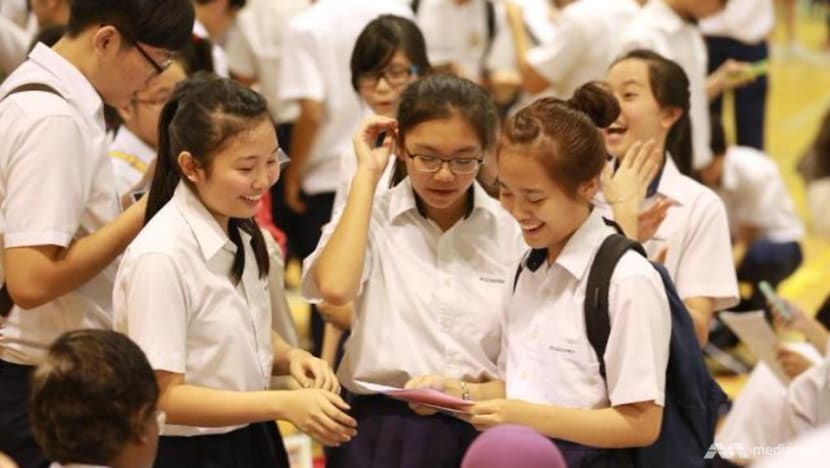
File photo of students receiving their O-Level results.
SINGAPORE: How prepared are our youth for the future? My biggest epiphany about this subject came about from dangling S$50 bills before students.
I have run dozens of future-readiness workshops with thousands of local university students where I would start by announcing that we were going to carry out a simple experiment.
I would take out a S$50 note, hold it up and tell the students that whoever wanted it could come up and take it, no hidden catches or tricks.
Typically what would happen was … nothing except for baffled glances between the students and nervous laughter.
After a few minutes, someone would stand up and make their way to the front of the room and ask for the note. This someone would invariably be male, and a foreign student from China, India or the West.
I remember only a couple of female students getting up, but sadly they sat back down again when they saw another male contender stand up. Hardly any Singaporeans came forward.
Afterwards, we would ask the students:
What prevented you from stepping up?
ROBOTS
I’ll tell you their answers in a bit. But let’s reflect on how ready our Singapore youths truly are, to face a future of rapid change, unpredictable opportunities and hyper-competition.
On the surface, things look good. Every other week I read news about Singapore topping this or that employability or education index. Just this week, the World Bank released their Human Capital Index which Singapore topped.
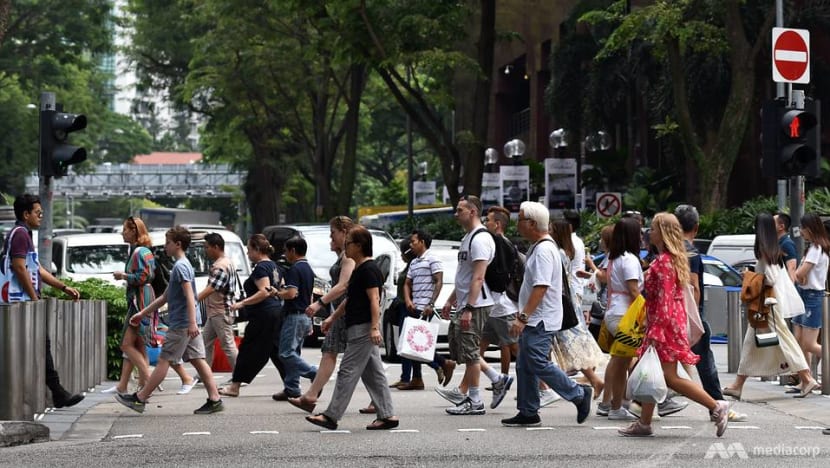
However, if you look closer, some of these rankings are informed by basic mortality measures. Are we measuring our ability to thrive, or merely to survive?
It shouldn’t be a surprise that we are great at gaming the rankings – the Singapore education system is the best training ground for producing highly efficient linear thinkers who have no problems operating in a rules-based structured environment.
Just like robots.
Spot the massive problem here? It’s planned obsolescence for our youth if we are still measuring success by outdated metrics. Because in a world of artificial intelligence (AI) and robots, we can’t compete on those terms anymore. We need to equip ourselves with different skills, mindsets and tools.
THRIVING IN A VUCA WORLD
In the real world, we all know what gets measured gets attention, a concept that management expert Peter Drucker made famous.
So how do you measure future-readiness of our youth and their ability to thrive in a volatile, uncertain, complex and ambiguous (VUCA) world?
In order to build a complete view, you have to look at a few perspectives.
Firstly, consider employers and what they are looking for when they hire future talent. The vast majority of employers are shifting their focus to identifying talent with strong soft skills, and this view is given further support by research linking social emotional intelligence to success in the workplace.
In addition, you also have to consider the needs of our youth and what competencies they need to face the future with confidence.
We are seeing unprecedented levels of anxiety, loneliness and depression from students, and it doesn’t matter how much training they are offered if deep down they believe that it’s hopeless.
READ: Under pressure at home and in school, youths battle depression
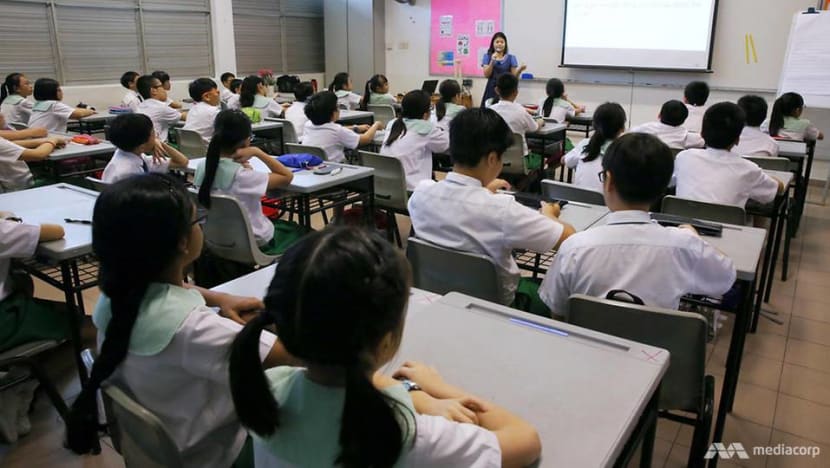
A FUTURE READINESS INDEX
There have been many efforts at assessing future-readiness of human talent based on economic measures, living standards, productivity and other external measures. However, in my view, the biggest challenges we face are internal ones – skills, mindsets and beliefs.
If I were to build a new genre of future readiness Index, it would focus on essential “deep human” superskills, all of which are well-researched, and can be taught, observed and measured objectively.
Interestingly, many of the corporates and educational institutions I work with tell me that these superskills are becoming increasingly rare at precisely the time where they are rising in importance.
A future readiness Index for our youth could comprise:
1. Focus and insight. Our school-aged youth are the first generation to have crucial brain stage development in an environment of mass distraction and technology addiction. The ability to control their attention, focus on what matters, and form insightful connections to separate the signal from the noise will be crucial to their success in life.
2. Self-awareness. In an increasingly ambiguous world, self-awareness is a sensing ability that enables us to navigate uncertainties and understand when to change course, when to fight for convictions, and also having the humility to consider that your idea may be wrong.
A body of current research suggests that self-awareness is linked to more effective leaders and bottom-line profits in companies. Perhaps most crucially, self-aware people are curious and self-motivated life-long learners.
3. Empathy. Empathy is the ability to shift perspectives, and understand others on a deeply human level. Coupled with self-awareness and the ability to assert appropriate boundaries, empathy is a superskill that allows you to connect and engage others effectively.
4. Complex communication. In a world of constant strategy shifts and restructuring, not to mention the added challenge of working virtually with cross-cultural teams, it is essential to have sophisticated communication skills such as giving effective feedback and conflict resolution.

5. Entrepreneurial thinking. The ability to spot opportunities, promote your ideas, evaluate risk and reward, and act fast is crucial in an ever more competitive world.
6. Adaptability and resilience. This is a fundamental hygiene factor. It doesn’t matter if you have all the previous five abilities if you give up easily, are paralysed by failure or do not possess the psychological flexibility to adapt and keep going through turbulence.
An index like this can actually be a useful and practical tool for individuals and institutions.
For example, when students enter university, they can complete a future-ready diagnostic assessment that gives them a simple graphical overview of their strengths and developmental areas, and recommend activities and experiences tailored for them.
Employers can complete this diagnostic tool to give each student post-internship feedback on their future-ready capabilities, as can academic advisors and peers.
Students can see their strengths objectively, learn where their blind spots are and track their progress over the university journey.
This way, the index generates a personal development roadmap rather than just a set of arbitrary scores that no one has a sense of ownership over.
CORE BELIEFS AND VALUES
An index sheds light on the breadth of the problem but we also need to consider the issue of depth.
Over the past few years my explorations in future-readiness have been a continuous journey of humility. The more I learn the less I realise I know. As the saying goes, real knowledge is to know the extent of one’s ignorance.
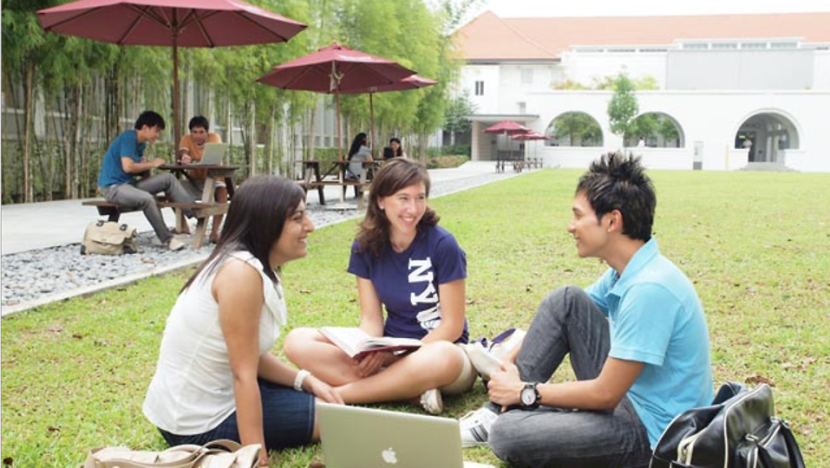
For instance, in teaching future-ready abilities, I have realised skills are only the tip of the iceberg.
What is far harder is shifting mindsets and working on core beliefs. For example, learning empathy is more than the skill of merely voicing out empathic phrases. True mastery of empathy includes developing a mindset of compassion, supported by a core belief in a common humanity.
How to instill empathy in youth involves a whole eco-system modelling all these levels – behaviours, mindsets and core beliefs.
Remember the S$50 experiment – what stopped the Singaporean students from getting up?
Most said they missed out on the instruction, or that they feared taking a risk or didn’t want to look greedy in front of others.
What haunted me was the memory of the female who stood up and sat back down again when she saw male students rising. The student in the front row who said that S$50 wasn’t enough and he may have done it if it was S$100. And the ones nodding off in the back row, sleep-deprived from their jam-packed content-heavy curriculum.
It is tempting at this point to think that this is a “millennial” problem, but if we were to truly embody the empathy we want to develop in our youth, we would see our part in creating the reality that exists today.
What holds our youth back isn’t just a question of skills, it is a question of mindsets. And how we fix it goes beyond organising workshops or devising new training programmes.
It requires a complicated, big, profound conversation that also involves contemplation of culture, power, gender, privilege and all the other elephants in the room that shape how our youth view the world and engage with it.
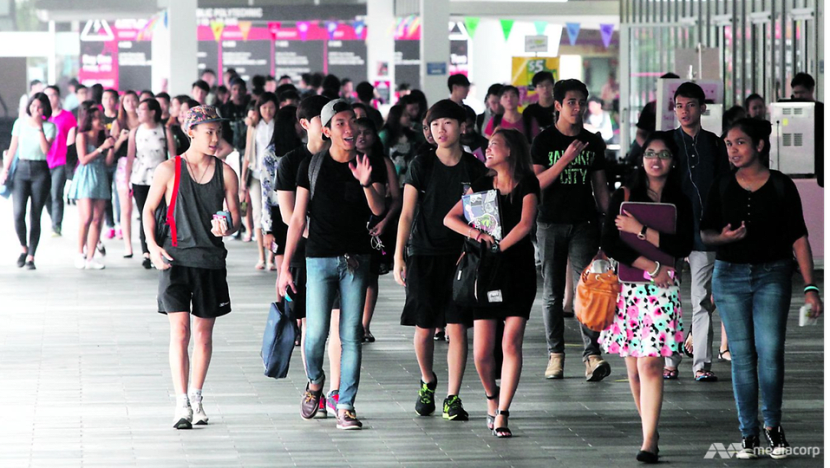
If we really want to prepare our youth, a future-ready index is a helpful start as a means of aligning our goals and collecting data.
But the real work is that we ourselves, parents, government and authority figures, must understand our role as stewards. We must be the change we want to see, do the right but sometimes difficult thing, and be prepared to challenge our own calcified, fixed mindsets, even if it means admitting our mistakes.
If we are stewards, we must travel alongside our youth, instead of pretending that we can send them up the garden path equipped with a toolbox of skills that we ourselves don’t apply.
The root of the word “index” means to point, but what is more important than a pointing finger is a helping hand.
Crystal Lim-Lange is CEO of Forest Wolf, a future-readiness consultancy, and strategic advisor to Minerva Project.














